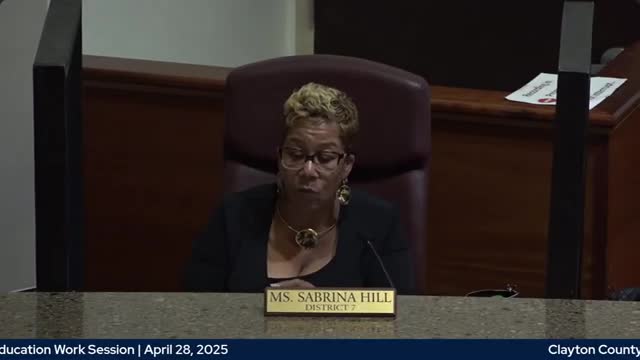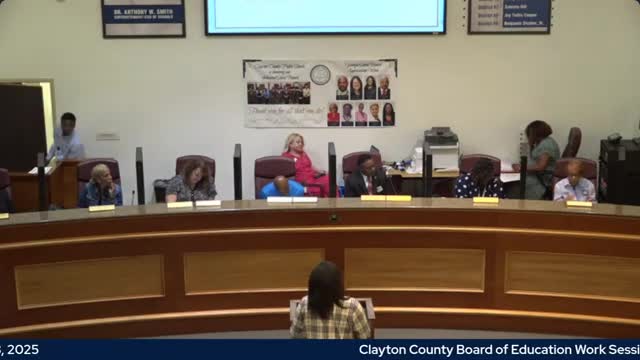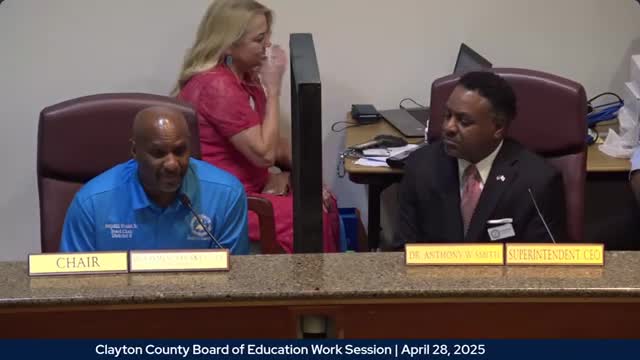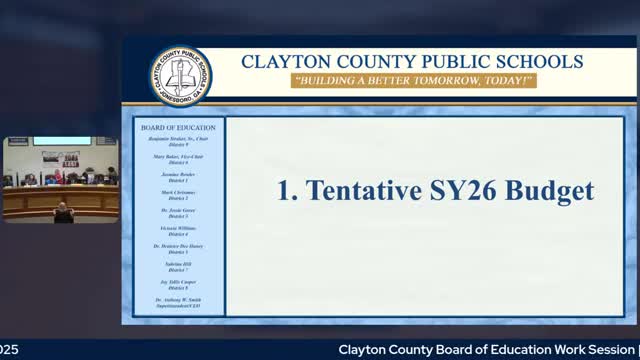Article not found
This article is no longer available. But don't worry—we've gathered other articles that discuss the same topic.

Board previews convocation center operator selection; foundation to execute management contract

Clayton County Board tentatively adopts FY26 budget; board approves moving to public hearings 7–1

Clayton County board hears call for universal early dyslexia screening; district outlines SB 48 implementation

